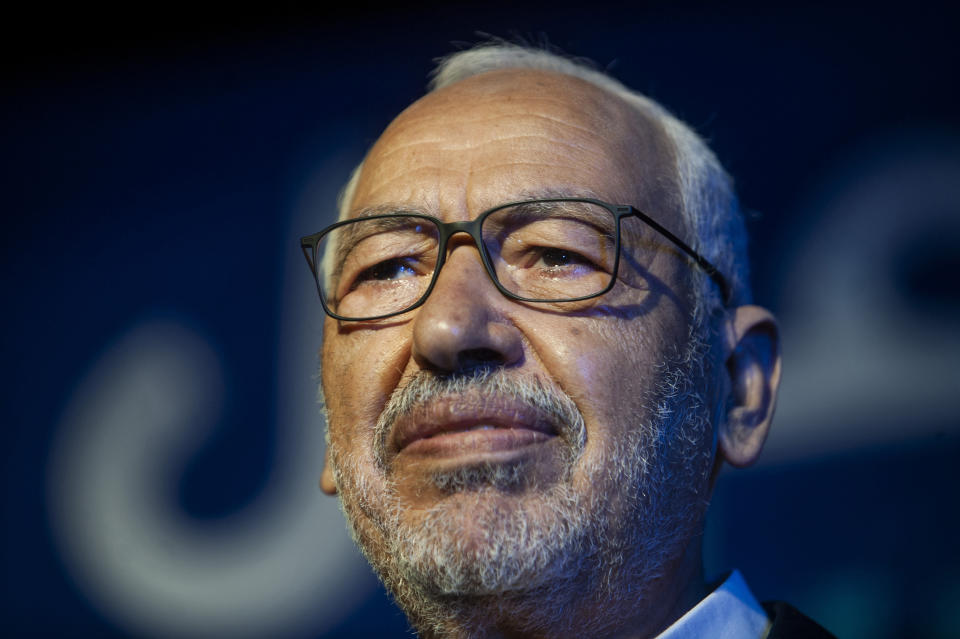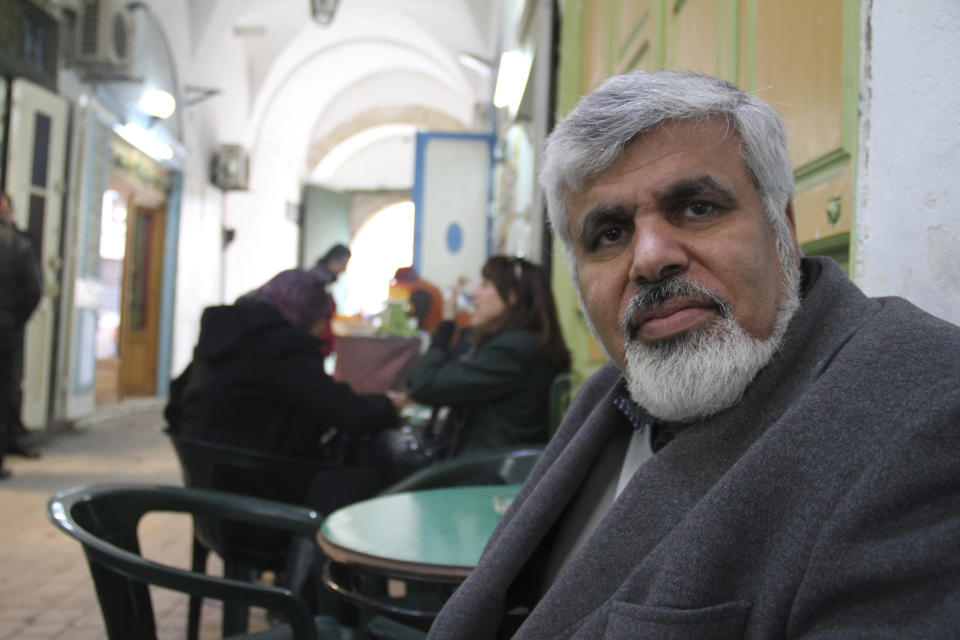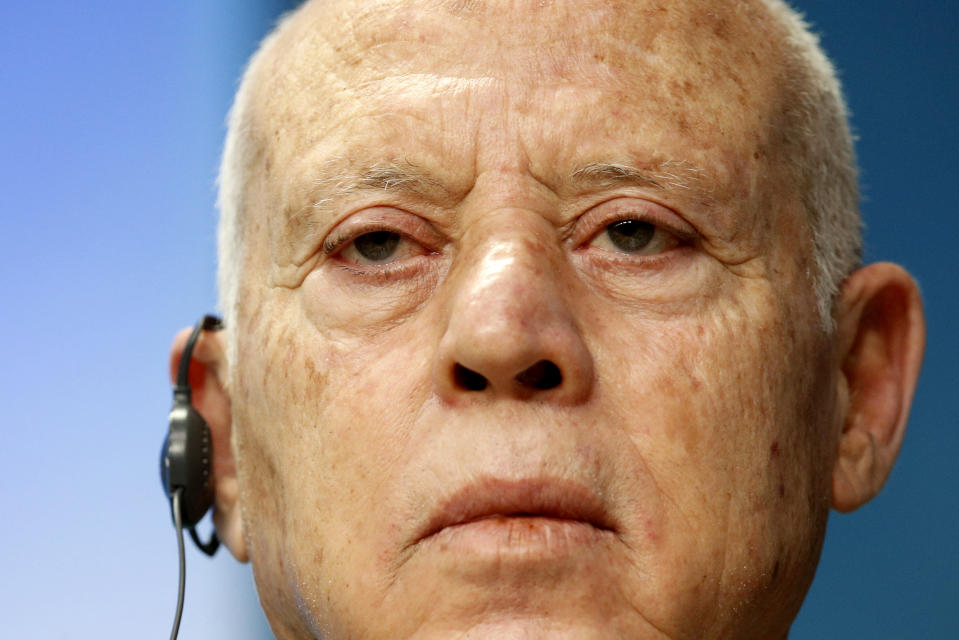Families of imprisoned Tunisian dissidents turn to the International Criminal Court seeking justice
- Oops!Something went wrong.Please try again later.
- Oops!Something went wrong.Please try again later.
TUNIS, Tunisia (AP) — Family members of seven imprisoned Tunisian opposition figures took their quest for justice on Thursday to the International Criminal Court, announcing plans to ask the tribunal to investigate claims of political persecution and human rights violations by President Kais Saied's administration.
Tunisia's opposition is increasingly denouncing Saied's authoritarian drift, saying it amounts to a rollback of gains made since the 2011 Arab Spring protests that swept the Middle East. In Tunisia, the uprising ushered in a constitutional overhaul and democratic reforms.
However, Saied’s government has cracked down on opponents and jailed dissidents, including opposition leader Rached Ghannouchi and former lawmaker Said Ferjani.
Members of the families petitioning the ICC described his rule as a devastating return to a pre-Arab Spring autocracy where dissidents were imprisoned and tortured.
“It's sad to see,” said Yusra Ghannouchi, the daughter of the imprisoned 82-year-old opposition leader. Her father was on a three-day hunger strike earlier this week.
“We have to call on the world not to turn a blind eye to these violations and not to support dictatorships," she said at The Hague. "We are also here to send a message to democratic nations and to European governments not to support and legitimize Kais Saied.”
Seventeen other prominent dissidents have recently staged hunger strikes from prison, with several still ongoing. Jawhar Ben Mbarek, the head of the leading anti-Saied coalition, continues his open-ended hunger strike.
The family members made a similar case to the African Court on Human and Peoples’ Rights earlier this year and have also petitioned the United States and United Kingdom for sanctions against the Tunisian government.
“You are transported back to when you were a child and you saw him in prison ... times you couldn’t speak to him because the torture was so bad that he was in a coma,” Kaouther Ferjani said of her father, who was also imprisoned during a 1987 crackdown.
“As bad as it was back then, I got to see my dad,” she added, saying that he has now only been granted permission to see his attorney and nobody else.
The two daughters told reporters about the increasing number of judges, politicians, journalists and prominent opposition figures being arrested. According to their tally, at least 42 prominent figures have been jailed. Many face sweeping charges of endangering state security.
The petition at the ICC is intended to draw further attention to Tunisia's increasingly repressive political landscape since it revised the constitution in 2021, allowing Saied to expand his powers, freeze out the parliament and rule largely by decree.
As the country's economy sinks, Saied's government has jailed critics from across the political spectrum — right, left, Islamist and secular. It has also drummed up animosity against sub-Saharan African migrants that has often escalated to violence.
"He is using a populist discourse that demonizes and seeks to feed hatred and division, whether it is against foreigners or in the treatment of sub-Saharan migrants or among Tunisians themselves," said Jaza Cherif, the son of scholar and activist Chaima Issa.
Issa was recently released and placed under house arrest. More than 20 Saied opponents have languished in prison since February.
The group's lawyer, Rodney Dixon, said the families filed what's called an Article 15 submission on Thursday, providing the court's prosecutor documents that outline claims of at least one of the four crimes it pursues — genocide, crimes against humanity, war crimes or crimes of aggression.
Anyone can file such a claim with the court for review. Though they're a significant channel for the ICC, few cases progress to the level of extensive investigations.
Still, the petitions such as the one Thursday by the Tunisian families "provide a unique channel ... to bring the prosecutor’s attention to alleged crimes,” said Maria Elena Vignoli, Human Rights Watch's senior international justice counsel.
On Tuesday, former right-wing lawmaker Abir Moussi, another prominent Saied opponent, was detained while trying to file a complaint at Carthage Palace, the Tunisian president's headquarters. On Tuesday, her lawyer Nafaa Laribi told TAP, Tunisia's official news agency, that he did not know why she was being detained for 48 hours.
A group of lawyers representing Chaouachi and four other dissidents aid in a statement this week that the legal process “deprives prisoners of their freedom without presenting any justification for the accusations made against them.”
___
Metz reported from Rabat, Morocco.



